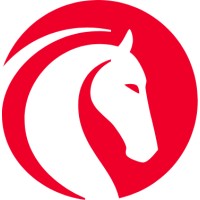Should You Submit an Optional Cover Letter? The Answer is Yes
The job application process is riddled with uncertainty, and one common dilemma job seekers face is whether to submit a cover letter when it is listed as optional. This article aims to answer that question by shedding light on the importance of cover letters in job applications and the potential drawbacks of not submitting one. We will also provide practical tips for crafting a compelling cover letter and share real-life examples of successful cover letters as well as expert opinions on the topic. So, let's dive in and explore the reasons why submitting an optional cover letter can significantly increase your chances of landing an interview.

The Importance of Cover Letters in Job Applications
Cover letters serve a vital purpose in job applications by showcasing the applicant's dedication and interest in the position. They complement resumes by offering a space to elaborate on one's skills, experiences, and motivations, providing context to the facts listed in a resume. As a result, cover letters can help create a more comprehensive picture of the applicant, ultimately increasing their chances of securing an interview.
Several studies highlight the impact of cover letters on interview chances. For instance, a study by ResumeGo found that job applications with tailored cover letters had a 53% higher callback rate than those without cover letters, emphasizing their significance in the application process. Despite these statistics, misconceptions persist about the importance of cover letters, with some job seekers underestimating their value and opting not to include them in their applications.
Reasons to Submit an Optional Cover Letter
Submitting an optional cover letter can be advantageous for job seekers in various ways:
- Demonstrates interest in the position : A well-crafted cover letter shows that the applicant has put in the effort to understand the job requirements and is genuinely interested in the position.
- Conveys professionalism and commitment : Taking the time to write a cover letter, even when optional, signals a high level of professionalism and dedication to potential employers.
- Helps the applicant stand out from the competition : Including a cover letter can differentiate an applicant from others who chose not to submit one, potentially improving their chances of being noticed by the hiring manager.
- Addresses potential concerns or gaps in the resume : A cover letter offers an opportunity to explain any gaps in employment, career changes, or other concerns that may arise from the resume.
- Personalizes the application : Tailoring a cover letter for the specific job and company demonstrates an understanding of the employer's needs and requirements, which can leave a lasting impression on the hiring manager.
Potential Drawbacks of Not Submitting a Cover Letter
Not submitting a cover letter, even when optional, can have negative consequences for the job seeker:
- Gives the impression of a lack of interest or dedication : Choosing not to include a cover letter may signal to the employer that the applicant is not fully committed to the position or lacks enthusiasm for the role.
- Risk of being overlooked in favor of candidates who submitted cover letters : In a competitive job market, not submitting a cover letter can put an applicant at a disadvantage compared to others who took the time to include one.
- Missed opportunities to address potential concerns : Not providing a cover letter means losing the chance to explain any discrepancies or concerns that may arise from the resume, which could negatively affect an applicant's chances of securing an interview.
- Not maximizing one's chances in the job market : In today's highly competitive job market, it is crucial for job seekers to take every opportunity to stand out and increase their chances of landing an interview. Not submitting a cover letter, even when optional, can hinder those chances.
Tips for Writing an Effective Optional Cover Letter
Crafting a compelling optional cover letter requires following certain best practices and guidelines:
- Personalize the cover letter for the specific job and company : Research the company's values, culture, and recent projects or achievements, and incorporate this information into the cover letter to demonstrate a genuine interest in the organization.
- Address the employer's needs and requirements : Make sure to review the job posting carefully and identify the key skills and qualifications the employer is looking for. Highlight how your experiences and skills align with these requirements and address how you can contribute to the company's success.
- Highlight relevant skills and experiences : Use the cover letter as an opportunity to elaborate on the specific skills and experiences that make you a strong candidate for the position. Provide concrete examples and anecdotes to support your claims.
- Maintain a professional tone and error-free content : Ensure your cover letter is well-written, free of grammatical errors and typos, and maintains a professional tone throughout.
- Make the cover letter engaging and memorable : Start with a strong opening that captures the reader's attention and use storytelling techniques to make your cover letter memorable and engaging.
"As a long-time admirer of XYZ Company's commitment to sustainability, I was thrilled to see the opening for a Project Manager on your team. With my background in environmental engineering and proven track record of managing successful green initiatives, I am confident that I can contribute significantly to your ongoing efforts to reduce the company's environmental footprint."
In conclusion, submitting an optional cover letter is an important step in the job application process that should not be overlooked. A well-crafted cover letter can demonstrate your interest in the position, convey your professionalism and commitment, help you stand out from the competition, address potential concerns, and add value by personalizing your application. By following the tips and insights provided in this article, you can maximize your chances of securing an interview and make a lasting impression on potential employers. So, don't hesitate – start crafting your optional cover letter today and increase your chances of landing that dream job.
- Search Search Please fill out this field.
- Career Planning
- Finding a Job
- Cover Letters
Do You Need a Cover Letter When It's Not Required?
When you do (and don't) need a cover letter to apply for a job
:max_bytes(150000):strip_icc():format(webp)/ADHeadshot-Cropped-b80e40469d5b4852a68f94ad69d6e8bd.jpg)
Why Write a Cover Letter?
Reasons to include a cover letter, reasons not to include a cover letter.
- Tips for Writing a Cover Letter
Do you really need a cover letter if a company doesn't ask for one? Writing a lot of cover letters during a job search is often both challenging and time-consuming. Because of this, it's not surprising that applicants often hesitate to include a cover letter when it is not explicitly required by an employer.
If you're wondering if you should include a cover letter, the short answer is yes. That said, there are a few exceptions.
You should almost always submit a cover letter , even if the company doesn't ask for one.
Here's what you need to know about the value of cover letters, along with the situations where you can skip a cover letter.
If you're serious about landing the job, a well-written cover letter gives you a chance to sell yourself to the employer in a narrative format, and explain why you are an ideal candidate. Taking the time to match your qualifications to the job can help you get selected for an interview.
All of your efforts in the cover letter will help hiring managers do their job of screening applicants, and may get your resume a closer look.
A cover letter also affords you the opportunity to highlight your strongest qualifications.
An effective, well-written, and customized cover letter also makes it clear that you are highly interested in the job. That's because it shows the hiring manager that you want the job enough to go the extra distance.
To Share Extra Information
A cover letter gives you an opportunity to include details that your resume does not contain. For example, if you are applying from a distance, your cover letter will enable you to present a rationale for relocation and to mention that you will be in the area shortly for a possible interview.
To Explain a Gap
Gaps in employment with reasonable explanations can also be addressed in your letter. A cover letter is also an ideal place to provide specific examples that prove you have the skills and experience listed on your resume.
The Employer May Expect One
Additionally, some employers expect to receive cover letters even though they did not stipulate that a cover letter was required in their job advertisements.
Candidates who don't take the time to compose a letter are often viewed as less motivated for the job.
In many cases, employers won't even look at a job application that doesn't contain a cover letter or letter of interest.
For some jobs, you won't need a cover letter to apply. Some employers don't accept cover letters as part of the application process. For other positions, there may be no way to submit one. If a cover letter is optional, it's better to skip it if you don't have the time to compose a well-written one.
When the Employer Doesn't Want One
If the job application instructs that you should not include a cover letter, then it's definitely best to follow directions so as not to annoy your potential employer.
When You Don't Have Time
No letter is much better than a poorly written one. A well-composed cover letter serves as a sample of your writing ability, but the opposite is also true. If you don't have time to write a well-crafted cover letter that pitches your skills and positions you for the job, forego the effort.
When There's No Way to Submit One
Also, if the company asks you to submit your application through an online platform, and there is no place for you to submit a cover letter, don't worry about it.
Tips for Writing a Cover Letter That Will Impress
When you do include a cover letter with your resume, it's important to make it a good one. Here are tips for writing a cover letter that will make the best impression and add value to your application.
Kelly Miller. / The Balance
- Make it targeted. Be sure to compose a targeted letter that is written with the job listing in mind. Focus on the skills and abilities you possess that make you a strong fit for the specific job.
- Keep it short. Make sure that your letters are concise (no more than one page topping out at five paragraphs) and that every statement you make conveys something significant about your qualifications for the candidacy.
- Go beyond your resume. Avoid simply repeating your resume. Provide examples not listed in your resume, and expand upon things mentioned only briefly in your resume. Your cover letter should have a distinct purpose regarding your application.
- Edit, edit, edit. Errors in your cover letter can hurt your chances of getting an interview. Errors make you look sloppy, or worse, not educated. Be sure to thoroughly read your letter before submitting it. Consider asking a friend or colleague to read it as well to check for typos, grammatical errors, and confusing language.
Key Takeaways
- Writing a cover letter makes the hiring manager's job easier, by highlighting exactly why you're the right match for the role. That gives your application an edge.
- Even if the company doesn't specifically request a cover letter, it's a good idea to write one if you're interested in the role at hand.
- Skip a cover letter if the employer says not to write one, or if there isn't a place to include one in an online application form.

- Internships
- Career Advice
How to Approach a ‘Cover Letter Optional’ Job Listing
Published: Apr 09, 2019

Have you ever been invited to a friend's birthday party and been told you shouldn't feel pressure to bring a gift? How often do you take this at face value? Do you assume your friend really doesn't want a present? Or do you think, "I'll just play it safe and get her something small to show I've thought of her?"
Job seekers faced a similar dilemma when greeted with the words "cover letter optional" in a job posting. If you've been in this position, you've likely wondered, "Are they just testing me? Do they really want me to submit a cover letter, or are they genuinely fine with not receiving one? And what will it say about me if I don't attach one?"
Read "optional" as "essential"
There is, of course, the chance that an employer has used the line "cover letter optional" because they honestly don't see much value in you attaching this document. But it's also entirely possible that recruiters give you the choice to submit or not to submit because they want to find out how keen you really are on the position.
Since you never know whether you're dealing with the first or second scenario, it's always safest to send a letter—even when doing so is not required and even when the job ad says nothing about it at all. The only time you wouldn't attach this invaluable document is if the posting explicitly requests that you don't.
Set yourself apart from the competition
First and foremost, submitting a cover letter when you don't have to shows that you really, truly want the job. If you're not willing to set aside an hour or two to craft a letter, recruiters might question whether you're really that motivated at all, and that won't reflect well on you.
Choosing to send a letter also offers hiring managers a preview of what's to come if they hire you—it shows that you're the sort of employee who’s prepared to go above and beyond and do more than the bare minimum. If you're being compared to similarly qualified candidates who didn't submit a letter, then this testament to your work ethic should give you an advantage over them. If a cover letter is potentially going to be the one thing that differentiates you from others, why wouldn't you attach one?
Demonstrate your soft skills
A cover letter also presents various other opportunities you don't want to miss out on. It's a chance to demonstrate strong communication skills, which are highly valued in almost every industry, and to say what you can't in your resume . In a letter, you can capture what it is about the role and the company that most appeals to you, showcase your unique personality, and make specific links between your skills and experience and the requirements of the position. Your resume offers a summary of your career history and qualifications; a cover letter acts as a bridge, showing how these details would translate to success in this particular job.
Make your cover letter work extra hard
If hiring managers include the line "cover letter optional" in a job posting, it might be because they don't want to be inundated with a heap of extra reading that doesn't add value. So, if you're going to give them something they haven't requested, make sure it's worth their time to engage with it. Compile a document that's customized, original, and attention-grabbing, and avoid making all the common cover letter mistakes . Never start with "To Whom It May Concern" (personalize the greeting with the hiring manager's name instead), stay away from clichés and tired buzzwords , and don't just repeat what's in your resume.
It's also best to keep the emphasis on the company's needs and how you can add value, rather than on what the job would bring to your life. And, of course, you should make sure your letter is free of any errors and is as concise as possible—the leaner, the better, especially if it's only optional.
A final note
If you're not sure where to start, it's a good idea to use one of the many cover letter templates available online to assist you. Cover letter templates are especially helpful in that they typically offer step-by-step guidance and even suggest job-specific keywords to include to beat applicant tracking systems that screen for certain phrases.
Since 2005, LiveCareer has been helping job seekers create resumes and cover letters via its free resume builder and cover letter builder tools. Also available are collections of free, professionally written resume templates and resume samples , all of which are organized by industry and job title.
A simple guide for writing the perfect cover letter
No one loves writing cover letters.
They can seem awkward or even boring when you’ve written many. And they are time-consuming.
So when a job posting includes the words “cover letter optional,” it can seem like a relief. With those three words, you are blissfully let off the hook on that arduous but tedious task. Right?
The bad news is that the cover letter is never really “optional.”
The only time you don’t need one is when the job description specifies: “No cover letters, please.”
For many years, I’ve advised professionals as they navigate their career searches. As the director of MBA Career Coaching at the University of Maryland’s Robert H. Smith School of Business, I help candidates get jobs in consulting and professional services, among other fields. Before this job, I spent several years as a recruiter for PricewaterhouseCoopers.
Today, in the wake of the “Great Resignation,” a lot of companies are scrambling to fill record numbers of employment vacancies. It’s a great time to be looking for work. And it may seem reasonable in this environment to assume that, as a jobseeker, you’re in the driver’s seat and don’t need to write those “optional” cover letters.
But a cover letter — a good cover letter — is worth the time and energy when you want the job. It introduces who you are in a way that goes beyond the resume, it demonstrates your interest in the position and the organization, and it inspires the reader to take action. The cover letter can be the difference between getting the offer or not.
A large percentage of today’s job postings either require a cover letter or make it optional. Only a small percentage will indicate no cover letters. That means you should be prepared to submit a cover letter as part of your application 80% to 90% of the time.
As a former recruiter, I know there are times when two candidates end up closely ranked in the hiring team’s estimation. In those times, a cover letter can make the difference and help you inch ahead of the competition.
Here’s my advice for writing a good one, without a ton of effort each time.
Create a boilerplate. This part does take time and effort. For the first paragraph: Write an introductory paragraph that you’ll adapt for each new role and each new company. For the second paragraph: Write out several of your skills, or competencies, in a skimmable, bulleted format. Each competency will be in bold type, with a sentence or two that tells a short story of how you have used this skill and what outcome it produced. Focus here on direct evidence — facts, not judgments. For the third paragraph, describe what drives you and what you’re like to work with. That is your value proposition. For that final, closing paragraph, restate your interest, thank the hiring team for its consideration and look ahead to next steps.
Customize, customize. That boilerplate is going to do so much heavy lifting. Using it, you’ll modify the introductory paragraph, asserting your interest in the role and the company. Then, you’ll select two or three of the bullet points from your boilerplate list to specifically highlight the skills mentioned in the job posting. The third and fourth paragraphs can likely remain just as they are. That’s the beauty of this strategy. It’s far less daunting to modify an old cover letter than to start from scratch each time.
Find an editor. It should go without saying, but a good cover letter is well-written and free of grammatical errors and other silly mistakes — like accidentally leaving in a reference to the last company you applied to. Achieving that requires a second pair of eyes or even a third. Enlist a friend or loved one who will be your editor, and be prepared to return the favor someday.
One final tip: Always re-read the job description once or twice. Make sure you know what the posting is asking for, so the cover letter speaks directly to that. And remember, it’s not about what you want the hiring team to know — it’s about what they need to know.
Dori Jamison is the director of MBA Career Coaching at the University of Maryland’s Robert H. Smith School of Business. Prior to coming to Maryland Smith, she worked for eight years as a recruiter for PricewaterhouseCoopers.
- Resume Templates
- Resume Examples
- Free Resume Builder
- How to Write a Resume
- Resume Format
- Resume Packs
- Cover Letter Templates
- Cover Letter Examples
- Free Cover Letter Generator
- How To Write a Cover Letter
- CV Templates
- CV Examples
- Free CV Maker
- Resume Help
- Cover Letter Help
- Job Interview
- Career Advice
The Optional Cover Letter: Do You Still Need to Add One?
We all want to put our best face forward when we are applying for a job. This includes supplying a top-notch resume and an engaging cover letter . But what if the job ad states “cover letter optional”? Do I still need to provide one or not? Will I lose some potential brownie points in the eyes of the employer?
Career experts have done some research around optional cover letters and how you should treat such requests. Let’s take a closer look at this hot topic.
Should You Write a Cover Letter if It is Optional?
Yes, it’s best to provide a cover letter even if it’s stated as optional. Why? Because it’s another “touchpoint” between you and the potential employer. Use it to draw more attention to your resume (and skill set respectively) and give a preview of your personality. Candidates who provide a professionally written cover letter are usually viewed as more professional and interested in the position than those who don’t.
Also, actually taking the time to write a cover letter can set you apart from the competition. One small-scale study, done by a recruiter, suggests that 73% of applicants don’t bother filing a cover letter or even write a short introduction in an email. So doing the courtesy of writing a formal or more informal email cover letter can be pretty refreshing for some employers.
OK, But Why State ‘Optional Cover Letter’ At All?
If data suggests that employers prefer cover letters, why some companies state that the “cover letter is optional”? That’s totally confusing. Yeah, we get that.
But there are two possible reasons for that:
- By “cover letter optional”, some companies mean that you should write a less formal letter of introduction (email), rather than attach a “traditional” cover letter. They still expect more than a resume, sent without any further notice.
- Others treat the “optional” thing as a quick applicant test. Many large companies, receiving hundreds of submissions, may want to easily weed out those candidates that don’t put in any extra effort. A company may begin its candidate analysis process by eliminating those who are not interested in the job enough to submit a cover letter. In some cases that could be potentially hundreds of letters or emails that they don’t need to waste time on.
The bottom line: If a cover letter is optional, it’s not an excuse to skip it altogether.

Are cover letters necessary when you are applying via an on-site hiring form? It depends. Some job application forms, however, provide extra questions that allow you to talk about your personality, skills, and reasons for applying. But even in such cases, it’s best to add a quick introductory letter if you feel like you’ve got a few more things to say.
Does The Cover Letter Content Matter?
So, if we have already established that most employers want you to provide a cover letter, along with your resume. But do you need to bother making the cover letter content relevant to the position?
Oh yes, you do! The purpose of a cover letter is not simply to “check a box” with the employer – it’s a sales tool to persuade them to meet with you for an interview . For that to happen, your letter has to be personalized to the job.
- Research the hiring person’s name and add it to the letter
- Specify if you have a “shared connection” (even on LinkedIn)
- Reference a recent company event or accomplishment
- Explain how the company values align with yours
To personalize your cover letter, do some company research in advance.

Also, treat your cover letter as an opportunity to explain why you are interested in taking on the position – something that you cannot really do with your resume. When your cover letter is done well it may be the deciding factor for you landing an interview with the company.
What Else Should Be Included In An Optional Cover Letter?
Optional or not, a cover letter should do two things well:
- Communicate your interest in the role
- Highlight your “fit” for the opportunity
To convey the above, the lengths of the resume may not be enough.
In essence, a cover letter is an opportunity to showcase how you use your core competencies (listed as skills on your resume) in your day-to-day work. For example, if the job on offer is to support a certain area, such as product development, then you can use your cover letter to mention how you would be able to fit in with their plans. Mention how you previously led product development within your current company, what results you’ve achieved and how you plan to replicate this success if given a chance. You can check cover letter examples on your website to get a better sense of how to convey your skills via extra context.
Apart from the above, a good cover letter should include:
- A strong opening
- Two-three paragraph, centered around your skills
- Closing statement with a call-to-action
What If You Don’t Send In An Optional Cover Letter?
You might not have enough time to write a decent cover letter to go with your job application. Or you are facing the worst writer’s block of all time. What happens if you don’t end that optional cover letter after all?
If you are short on time, focus on your resume instead. Put your available time into making sure it is perfect and send it in. Also, prioritize answering other questions on the job application platform.
Finally, instead of a full-length letter, provide a quick personalized note that briefly introduces you and expresses your interest. You can re-use a variation of your personal statement . For example, as a recent graduate applying for a business analyst job you may write something like this:
“Good day, [Name], I’m looking forward to becoming part of the XYZ BA Office and applying my skills in process analysis, requirements gathering, quantitative and qualitative research, to help XYZ maintain its position as a leader in industry X”.
Also, for the next time around, prepare a generic cover letter — a pre-written cover letter template you can quickly personalize to different job offers. Having one will say you heaps of time (and stress)!
Conclusion
When a cover letter is optional, a lot of job applicants may be tempted to skip it. Don’t be one of them! A cover letter is a great means to convey your interest in the job and provide a quick “preview” of your personality and work abilities. Given that a lot of employers now seek out “cultural fits”, rather than applicants who tick all the job requirement boxes, a well-written cover letter can majorly increase your chances of landing a job with a prestigious employer!

Elena runs content operations at Freesumes since 2017. She works closely with copywriters, designers, and invited career experts to ensure that all content meets our highest editorial standards. Up to date, she wrote over 200 career-related pieces around resume writing, career advice... more
you might also like

6 Best Fonts for a Cover Letter (And How to Choose One)

What is the Purpose of a Cover Letter? Simple Answer

How to Include Salary Requirements in a Cover Letter?

4 Best Cover Letter Opening Lines to Make a Mark in the First Paragraph

148 strong verbs to use in your resume and cover letter
Leave a response cancel reply.
Skip to main content
- Skip to main menu
- Skip to user menu

What Does "Cover Letter Optional" Really Mean?
Published: Oct 30, 2019 By Andrea Moran
There is some debate in the business community about whether cover letters are even necessary anymore. But instead of eliminating them entirely, what you’ll probably find is that more and more companies simply make them “optional.” But…what exactly does that even mean? Before you bang your head against the keyboard in frustration, read one to decode the hidden meaning behind an increasingly popular application request.
The general rule is that, even if it’s marked “optional,” you should include a cover letter
There are a few reasons why companies would decide against requiring a cover letter—from not really thinking they’re that important, to testing which applicants are truly serious about the position, to wanting to reduce the amount of reading they need to do. Regardless of the reason (which you’ll never truly know), it’s a good idea to err on the side of caution and include one anyway.
According to Glassdoor , a well-written cover letter will leave a great impression from the outset. Writing one demonstrates dedication and the ability to go a step further than other candidates, with the added bonus of helping you stick out from the crowd (aka: those applicants who didn’t write one)…in a good way!
At the bare minimum, the inclusion of a cover letter will do what a cover letter always does: Explains to the hiring manager why you would be the best fit for the position and helps connect you on a more personal level to those in a position of authority. By taking the time and effort to write a thoughtfully crafted cover letter, you exude those same qualities just by virtue of writing one.

There is, however, a situation in which you should not include a cover letter
So after waxing on about the benefits that come from writing and submitting a cover letter even when it’s marked “optional,” there is actually a time you should skip its inclusion—and that’s when you don’t have time to write a good one.
Not including a cover letter is a much better decision than including a poorly written one—one that’s impersonal , too detailed, too egocentric, or riddled with spelling errors and typos. If you’re on a tight deadline or simply don’t have the mental energy to put toward a clean, concise, and professional cover letter, just leave it off. True, you’ll have missed out on a prime opportunity to set yourself apart—but it’s still infinitely better than the alternative, which is to set yourself apart as a definite “no” due to lackluster effort on your part. No one wants to write a cover letter while crunched for time, so trust that no one wants to read one written by somebody crunched for time either.
It may feel as though job posts are setting you up for failure (or at least exhausting mental gymnastics) by posting that cover letters are “optional,” but it will make your application process much easier if you simply view cover letters as a mandatory part of the application process unless explicitly stated otherwise. Ultimately, this is one of those situations in which you need to take an honest look at yourself and your abilities. Ask yourself: “In this particular moment, for this particular job, can I write a timely cover letter that thoroughly demonstrates my qualifications for the job in question?” If so, include one. If not, skip it. It’s as easy as that.
Search for your next job now:
Back to listing
The Washington Post Jobs Newsletter
Subscribe to the latest news about DC's jobs market
Related articles
- 5 Ways to Shorten Your Cover Letter This will open in a new window
- 3 Rookie Mistakes To Avoid On Your Cover Letter This will open in a new window
- Stop Sending the Same Cover Letter—Here’s how to Personalize to Make an Impression This will open in a new window
Washington Post Jobs Recommends:
5 Industries that Will Let You Work from Home
The Top Schools Offering Tech programs in the DMV
Why You Aren’t Getting That In-Person Interview
D.C.'s Real Estate Jobs and COVID: Where Does the Residential Market Stand?
- WayUp Community
- Communication
- Money & Personal Finance
- Productivity
- Job Interviews
- Job Roundups
- Resumes & Cover Letters
- College Life
- Day In The Life
- Common interview questions
- Cover Letter Tips
- Entry Level jobs 101
- How to succeed in your job
- Internships 101
- Resume Tips
- Sort by Industry and Majors
- Your first week on the job
- For Employers
Cover Letter Optional: Should I Submit One Anyway
April 5, 2016
You’re applying to a great job for college students on WayUp, and you see that the employer has made submitting a cover letter optional. Do you write one or just ignore it and apply anyway?
The answer is if you really want the job, then yes, you should absolutely submit a cover letter. “Students shouldn’t waste their time otherwise,” admits Liane Hadjuch, a former campus recruiter for RBC Capital Markets. “Cover letters tend to hurt you because so many people have mistakes or a generic template where they just change the name of the company.”
“If you’re going to do it, it should be a value add,” she suggests. “Something that hasn’t already been said in your application otherwise.”
So if you decide to submit, here’s how you can make sure that your cover letter really adds to your application and gives you a competitive edge.
Tell a story that speaks to qualifications in the job description.
Many times, interviewers will ask questions like, “Tell me about an accomplishment you’re most proud of” or “ Why should we hire you ?” These questions are meant to conjure a specific scenario that can help the employer determine how great of a fit you are for the role (and how you’ll perform in the job). Your cover letter is a great way to answer these questions right off the bat. Find a few of the job qualifications that match your own, and tell a story about a time when you solved a problem under pressure or found a mistake that everyone else missed.
For more cover letter tips, check out this simple guide to an impressive cover letter .
Strive to be original.
If you want to be a competitive candidate, don’t do what everyone else does. That means you shouldn’t be writing a generic, one-size-fits-all cover letter and sending it off to your first or second choice jobs. There are two key ways you can ensure that your cover letter stands out. First, make sure you’re addressing your cover letter to a real person instead of writing, “To Whom It May Concern.” This will show that you’ve done your homework on the company and will help to personalize your cover letter. Check out a few other overused phrases to delete from your cover letter .
Secondly, talk about what attracted you to the company and why you’re excited by the opportunity to join this particular team. Remember that you shouldn’t kiss up to the employer, but you should show that you’re eager to hear back from a company that has impacted you as a job seeker.
Explain something that needs more clarification.
Whether it’s a gap in employment, a change in career paths or the fact that your major and your career choice don’t match , you can explain yourself and your motivations through your cover letter. This can help employers to better understand your idea of your career path and why you want this particular job. Remember that as you’re clarifying, you shouldn’t make it seem like you’re apologizing or making excuses. Don’t spend too much time explaining yourself, just explain why you’re interested in the position, what led you to it and how your alternative background can be an advantage–then quickly move on. For example, if you’re a Psychology major applying for a Customer Support role, you can say something like, “I was first introduced to customer support during my junior year internship, where I discovered that my Psychology background helped me to go a step further in collecting and analyzing data, optimizing the company’s understanding of user behavior.”
Remember that you should only be putting in this much effort if you truly want this job! If that’s the case, follow these tips, double check that your cover letter is error-free and send it off! Employers will be impressed that you went the extra mile to submit a great cover letter.
It’s important to note however that most jobs on WayUp don’t require a cover letter, so if you’d rather skip the more traditional application process, we’ve got your back!
Top Photo Credit: blog.greatvectors.com
- application ,
- preparation ,
- underclassman
Must Reads see all articles

Discover the Future of Professional Development: KPMG Lakehouse Propels Early Career Success

How KPMG Global Opportunities Prepare Early Career Professionals for the Workforce

A Future-Ready Workforce at KPMG: Investing Ahead of the Curve

12 Paid Internship Opportunities That Will Launch Your Career
Hot Jobs see all jobs

IT Specialist (Policy and Planning)

Financial Accountant I

Technical Operator - 3rd Shift
Latest articles from arup.
Help Change the World by Interning at Arup
Learn How The Estée Lauder Companies Champions Diversity & Career...
Discover the Future of Professional Development: KPMG Lakehouse Propels...
We've got you on our list!
- Top Courses
- Online Degrees
- Find your New Career
- Join for Free
How to Write a Cover Letter When You’re Changing Careers (Sample + Tips)
As a career changer, you need to help recruiters understand why you’re moving away from your former line of work and what you want to achieve in your new career path..
![cover letter is optional [Featured Image] A man in a blue button-up is sitting down in a conference room holding pieces of paper.](https://d3njjcbhbojbot.cloudfront.net/api/utilities/v1/imageproxy/https://images.ctfassets.net/wp1lcwdav1p1/28u80RCd3SjJJ03qjwbPZJ/95337dc542ebaf56e3e04ba4835c2bab/9T9Z7AiJ.jpeg?w=1500&h=680&q=60&fit=fill&f=faces&fm=jpg&fl=progressive&auto=format%2Ccompress&dpr=1&w=1000)
You will inevitably change jobs throughout your career as you seek more responsibility, growth, or even a higher salary. According to the US Bureau of Labor Statistics, the average employee stays at each job for around four years [ 1 ]. However, for career changers—or those interested in exploring an entirely new path or industry—making that switch can sometimes involve unique challenges.
Even so, making a career change has become an increasingly popular move. More than half of workers in the United States anticipated looking for a new opportunity in 2022 [ 2 ]. Changing careers can allow you to find more meaningful work, better align your career path with your larger goals, and move into a more energizing role.
When you draft your cover letter to apply for a job in a new line of work, you must take time to explain your larger objectives. In this article, we’ll review specific information you can feature in your cover letter to help recruiters understand your goals and reasons for changing careers.
Learn more: How to Plan for a Career Change: Step-by-Step Guide
How to write a career change cover letter
A cover letter is a chance to expand upon the bullet points outlined in your resume . It’s a space where you can explain your interest in the role and company, highlight your experience and skills, and sell a recruiter on the overall fit you’d make.
But a career changer needs to do all of that and more. You also need to help recruiters and hiring managers understand why you’re moving away from your former line of work, what you want to achieve in your new career path, and any transferable skills that will help make your transition smooth.
Let’s review four key pieces of information you can weave into your career change cover letter.
1. Clarify your career change context
Explaining why you’re interested in changing careers and how the role you’re applying to fits within your larger career aspirations can preemptively contextualize your story. Plan to include a career change objective somewhere in your cover letter, much like you would a resume objective to provide a summary of a person’s experience and goals. Don’t be afraid to build a sense of personality so recruiters can better connect you with your objective.
What this looks like: I’ve spent the last six years translating complex topics for various users as a technical writer. But in that time, I’ve realized that what drives me is the user’s experience. It’s the lightbulb moment behind my career change to UX design . I believe I’ll make a strong addition to your team because my work has largely put the user front and center, and now I’m interested in focusing on a different facet of that goal.
2. Specify the value of your certificates, courses, or trainings
It costs over $4,000 to hire an employee, according to the Society for Human Resources Management [ 3 ]. That’s all the more reason why recruiters and hiring managers want to find the right candidate. It can be costly otherwise. Help explain what you’ve done to prepare for your career change by highlighting any professional certificates or trainings you’ve completed to prepare you for your new line of work.
What this looks like: In order to familiarize myself with the tools and processes used in data analysis, I completed the Google Data Analytics Professional Certificate , which taught me SQL and R, and trained me to clean and visualize data. Thanks to this preparation, I feel confident that I will make a strong addition to your team from the very start.
3. Bring attention to your transferable skills
Transferable skills are “portable,” in that you take them from job to job. They include problem-solving, critical thinking, attention to detail, and more. Show recruiters that you have important skills to help you do the job so they can understand the unique value you’d bring to their company.
It can also help to find out the key technical skills the job requires and spend time learning what you can, especially when it comes to important software or tools.
What this looks like: As a software developer, I regularly relied on my problem-solving skills to think through complex issues. I’ll bring that same skill, as well as my attention to detail, listening, and decision-making, to ABC High School as the new algebra teacher.
4. Highlight your past achievements
Any time you can highlight what you’ve managed to accomplish in your past roles, you help a recruiter see your potential in a new role. Where possible, summarize any moments that showcase your strengths and illustrate your work ethic or character.
What this looks like: I pride myself on being a team player and a problem-solver. As a social media manager at Company X, I identified a better program to help my team schedule content. Using that tool improved my team’s efficacy, leading to our most successful quarter.
Why is a cover letter important when changing careers?
The idea of a career path can sometimes be rigid, suggesting that people only follow one specific track. Although that perspective is starting to shift, it’s still prevalent. You can help recruiters and hiring managers understand more about your interest in a role by explaining why you’re changing careers and what you’ve done to streamline your transition.
It helps to align your cover letter with a resume objective, which can be especially useful for career changers. An objective on your resume is a place where you can contextualize your larger career aims, quickly summarizing what you’re hoping to achieve in your next role. Repeat that same information in your cover letter and expand on it slightly to give your application materials more cohesiveness.
Read more: How to Use Resume Sections to Shape Your Professional Story

Build job-ready skills with a Coursera Plus subscription
- Get access to 7,000+ learning programs from world-class universities and companies, including Google, Yale, Salesforce, and more
- Try different courses and find your best fit at no additional cost
- Earn certificates for learning programs you complete
- A subscription price of $59/month, cancel anytime
Career change cover letter sample
It's common practice nowadays to submit your cover letter digitally. In that case, include some of your contact information in the top left corner so recruiters can easily see how to get in touch.
Thomas Bennett
Nashville, TN
(555) 555-1234
Dear Ms. Tufte,
I’m writing to apply for the project manager role at Company X. I initially began my career as a marketing coordinator and eventually moved into email marketing , where I was responsible for strategizing and developing new campaigns. But in that time, I realized how much I thrived when managing our quarterly campaigns from start to finish. That’s why I’m interested in segueing into project management.
Knowing that, despite my experience, I still needed to learn more specifically about project management, I completed the Google Project Management Professional Certificate . Over six months, I’ve learned Agile project management as well as how to create product documentation, among other key skills. I believe this training, along with my previous experience, will help me transition to a project management role at Company X and make a big impact.
I’m an organized problem-solver with a sharp eye for detail, all important project management skills. I believe my previous work in email marketing provided hands-on training in managing projects, albeit without the official title. I identified new tools to help my team create more effective quarterly campaigns. As a result, we increased our click-through rate (one of our key metrics) to 1.87 percent, bringing it closer to the industry standard—an immense achievement.
I’m proud of the foundation I gained through marketing, but in realizing where my true passion lies, I’m keen to transition into a project management role with more growth opportunities. I appreciate your consideration.
Tips for strengthening your cover letter
Much like you would for a standard cover letter, you can strengthen your cover letter as a career changer using the following tips:
Tailor your letter for each role.
You should tailor your resume for each role you apply to, and the same goes for your cover letter. Research the company, find out about aspects of their work that interest you, and insert those details into your cover letter. You should also tailor your experience and skills, highlighting each job's most relevant skills and accomplishments.
Get specific.
Your cover letter should expand upon your resume rather than repeating the same information. One way to do this is by giving details about your past achievements. When possible, quantify your impact with numbers and explain how these accomplishments make you uniquely qualified for this new role.
Use action words.
Build action words into your resume and your cover letter. Rather than more staid words that don’t capture your unique story or responsibilities, action verbs can liven up your cover letter and make it more enticing to read. Find verbs that succinctly and accurately depict your previous experience.
Start advancing your skills today
Brush up on your cover letter writing skills by taking the University of Maryland’s free course, Writing Winning Resumes and Cover Letters . Or develop important skills for an in-demand career with a Professional Certificate from industry leaders like Google, Meta, and IBM. Most certificate programs take less than seven months to complete, and you can start for free with a seven-day, all-access trial.
Article sources
US Bureau of Labor Statistics. “ Employee Tenure in 2020 , https://www.bls.gov/news.release/pdf/tenure.pdf.” Accessed April 26, 2024.
CNBC. “ The Great Resignation is Likely to Continue , https://www.cnbc.com/2021/08/25/great-resignation-55-percent-are-looking-to-change-jobs-over-the-next-year-.html.” Accessed April 26, 2024.
ADP. “ Calculating the True Cost to Hire Employees , https://www.adp.com/spark/articles/2019/07/calculating-the-true-cost-to-hire-employees.aspx.” Accessed April 26, 2024.
Keep reading
Coursera staff.
Editorial Team
Coursera’s editorial team is comprised of highly experienced professional editors, writers, and fact...
This content has been made available for informational purposes only. Learners are advised to conduct additional research to ensure that courses and other credentials pursued meet their personal, professional, and financial goals.
The Definitive Voice of Entertainment News
Subscribe for full access to The Hollywood Reporter
site categories
John mayer sets the record straight on his friendship with andy cohen.
In a letter to The Hollywood Reporter, the rocker takes exception to a "flawed" question in this week’s cover interview with the Bravo host.
By THR Staff
- Share this article on Facebook
- Share this article on Twitter
- Share this article on Flipboard
- Share this article on Email
- Show additional share options
- Share this article on Linkedin
- Share this article on Pinit
- Share this article on Reddit
- Share this article on Tumblr
- Share this article on Whatsapp
- Share this article on Print
- Share this article on Comment
It’s no surprise that this week’s The Hollywood Reporter cover story on Andy Cohen would garner some attention — in it, the Watch What Happens Live host and Bravo producer spoke candidly with Co-Editor in Chief Maer Roshan about the accusations that had been swirling around the Real Housewives franchise, from on-set sexism to racism to alcohol and drug abuse, breaking his long silence about the controversy .
Related Stories
Did tyla or zendaya win the met gala red carpet the answer depends, 'abbott elementary' and the glow up of janine teagues.
“Your friendship with Mayer has been the subject of intense speculation,” Roshan noted. “People seem dubious that a straight rock star can have a close, platonic relationship with a gay TV personality.”
“Let them speculate” Cohen replied. “I honestly love John Mayer, and he loves me. But because we are so affectionate to each other, people don’t know what box to put that in. They assume we are sleeping with each other, which we are most definitely not.”
That snippet in a 5,000-word interview quickly went viral, with dozens of news outlets, from CNN to the Daily Mail to Yahoo News, picking it up. More surprisingly, the question caught the eye of a certain rock guitarist — Mayer himself — who was moved to write THR the following response, which is printed here in full:
Hi Mr. Roshan,
I read your interview with Andy Cohen , and was intrigued by your line of questioning regarding our friendship. You posited that “your friendship with Mayer has been a subject of intense speculation. People seem dubious that a straight rock star can have a close platonic relationship with a gay TV personality.”
I think this is somewhat of a specious premise. First, there is a long and storied history of “rock stars” (not mocking, just won’t refer to myself as one) befriending gay icons and artists.
I love intelligent discourse — as I hope you’ll find this email to be — but I bristle at your selectively flimsy logic meant to coax an answer, when the premise itself is so deeply flawed, and quite possibly not even quantitatively true.
Quite simply, if someone is dubious of a platonic relationship between a straight man and a gay man, I don’t think that shallow a view deserves clarification by anyone with self respect, be it Andy or your publication. Reinforcing the idea that any gay/straight relationship needs qualification that it’s not sexual devoids everyone involved of their dignity.
Respectfully,
John Mayer
THR Newsletters
Sign up for THR news straight to your inbox every day
More from The Hollywood Reporter
Tv ratings: ‘young sheldon’ series finale scores four-year high, ‘the chi’ stars curtiss cook, lynn whitfield on their feud and a “shakespearean spiral” ahead, ‘bridgerton’ pair luke newton, nicola coughlan on polin’s long journey and that iconic carriage scene, ‘tv’s top 5’: the upfronts wrap-up edition, john krasinski reveals what prop he “stole” from ‘the office’ set but has “always lied” about, nicola coughlan recalls pranking luke newton on ‘bridgerton’ set after learning about his boy band past.

COMMENTS
Yes. Even if a cover letter is optional, any applicant who takes the time to write and submit one anyway — especially a thoughtful, well-written, spell-checked letter — will make a good impression, both experts agree. "When the majority of people take the easy way out, and don't submit a cover letter, then writing one can make a ...
Only 26% of recruiters will "deduct points" from candidates who don't include an optional cover letter, according to a survey conducted by ResumeGo. But many, though not all, hiring professionals still read and consider cover letters. And you don't know what the particular recruiter or hiring manager for this job will do.
Notwithstanding the above, the only time you should submit a cover letter is when you have valuable information to share that's not conveyed in your resume. I've hired many candidates based on ...
An optional cover letter ultimately leaves the decision up to you, and as noted above, taking the time to write a thoughtful cover letter could prove a positive to your candidacy, especially for a competitive role. Tip: Cover letters complement resumes, providing additional context to your candidate profile.
The Answer is Yes. Feb 08, 2023. The job application process is riddled with uncertainty, and one common dilemma job seekers face is whether to submit a cover letter when it is listed as optional. This article aims to answer that question by shedding light on the importance of cover letters in job applications and the potential drawbacks of not ...
Reasons Not to Include a Cover Letter . For some jobs, you won't need a cover letter to apply. Some employers don't accept cover letters as part of the application process. For other positions, there may be no way to submit one. If a cover letter is optional, it's better to skip it if you don't have the time to compose a well-written one.
Short answer: Yes. Even in situations where the cover letter is optional, a recent poll found that 72% of hiring managers expect a cover letter, and 77% will move your resume up a notch if you ...
In a letter, you can capture what it is about the role and the company that most appeals to you, showcase your unique personality, and make specific links between your skills and experience and the requirements of the position. Your resume offers a summary of your career history and qualifications; a cover letter acts as a bridge, showing how ...
1:07. No one loves writing cover letters. They can seem awkward or even boring when you've written many. And they are time-consuming. So when a job posting includes the words "cover letter ...
Yes, you do need a cover letter in these common situations: The job description requests or requires a cover letter. You have a referral for your cover letter. The job requires strong writing and communication skills. Even if the job description says "cover letter optional", it's still important to write a great cover letter and attach it ...
Here are some benefits of including a cover letter in your job application: 1. They showcase your personality. Cover letters typically reveal insights into a candidate's values, character traits and outlook on work. Many hiring managers prefer candidates who align with the organization's culture, so highlighting your unique personality in your ...
Optional or not, a cover letter should do two things well: Communicate your interest in the role. Highlight your "fit" for the opportunity. To convey the above, the lengths of the resume may not be enough. In essence, a cover letter is an opportunity to showcase how you use your core competencies (listed as skills on your resume) in your ...
A cover letter is an introductory document many employers ask you to submit along with your resume when applying for a job. Depending on the company, you might need to email your cover letter and resume or there may be an online application process where you can upload it. Many job listings specify if they require a cover letter, but some don't ...
The general rule is that, even if it's marked "optional," you should include a cover letter. There are a few reasons why companies would decide against requiring a cover letter—from not really thinking they're that important, to testing which applicants are truly serious about the position, to wanting to reduce the amount of reading ...
Yes, optional cover letters are really optional. However, submitting a cover letter even when it's not required is still a good idea if you're really interested in a job. Submitting a well-written cover letter communicates to employers that you're serious about the position, and allows you to elaborate on your employment history ...
Yes. Even if a cover letter is optional, any applicant who takes the time to write and submit one anyway — especially a thoughtful, well-written, spell-checked letter — will make a good impression, both experts agree. "When the majority of people take the easy way out, and don't submit a cover letter, then writing one can make a ...
Cover letter tips, templates, and examples—from great opening lines to real samples that actually worked. Cover letter tips, templates, and examples—from great opening lines to real samples that actually worked. ... 5 Reasons You Should Write a Cover Letter—Even When the Job Description Says It's Optional Cover Letters. by Jaclyn ...
Step 2: Add your contact info. At the top of your cover letter, you should list out your basic info. You can even copy the same heading from your resume if you'd like. Some contact info you might include (and the order you might include it in) is: Your name. Your pronouns (optional)
The answer is if you really want the job, then yes, you should absolutely submit a cover letter. "Students shouldn't waste their time otherwise," admits Liane Hadjuch, a former campus recruiter for RBC Capital Markets. "Cover letters tend to hurt you because so many people have mistakes or a generic template where they just change the ...
Here are 15 things to avoid when writing a cover letter with tips and suggestions of what you can do instead: Not following instructions. Using the wrong format. Discussing why you are looking for a new position. Using the same cover letter for every application.
Cover letters' importance vary on what you're going for - if it's eg front desk/cashier/shelf stocker they're completely meaningless. At a senior level, they're the most important document in the application - when hiring at the manager level I'm paying more attention to the cover letter than the resume, because that's where the applicant applies their skills, history, and selves to the position.
Trying to put myself in the shoes of the hiring company, I would only put this into a posting if I really didn't care either way. The way I'd interpret it in your shoes is, only write a cover letter if it would benefit you (i.e. if there's something that would support your candidacy if you explained it in a way that you can't do in a resume). 10.
Let's review four key pieces of information you can weave into your career change cover letter. 1. Clarify your career change context. Explaining why you're interested in changing careers and how the role you're applying to fits within your larger career aspirations can preemptively contextualize your story.
This online workshop will offer tools to write clear, concise and compelling cover letters that effectively communicate your value. Key takeaways: How to capture employers' attention with your unique story. The anatomy of a perfect cover letter (with examples) When you should use a cover letter. Sign in to watch now.
John Mayer Sets the Record Straight on His Friendship With Andy Cohen. In a letter to The Hollywood Reporter, the rocker takes exception to a "flawed" question in this week's cover interview ...